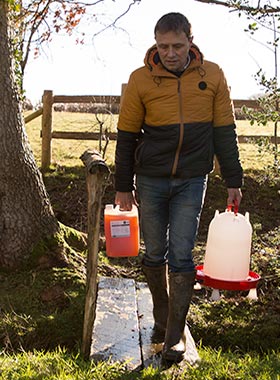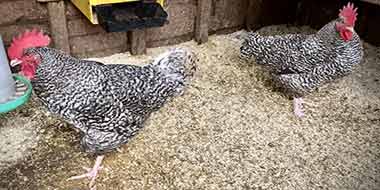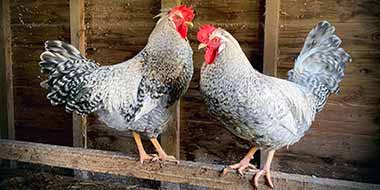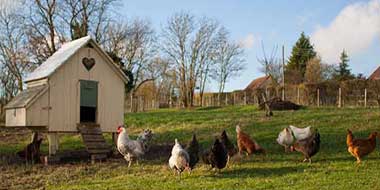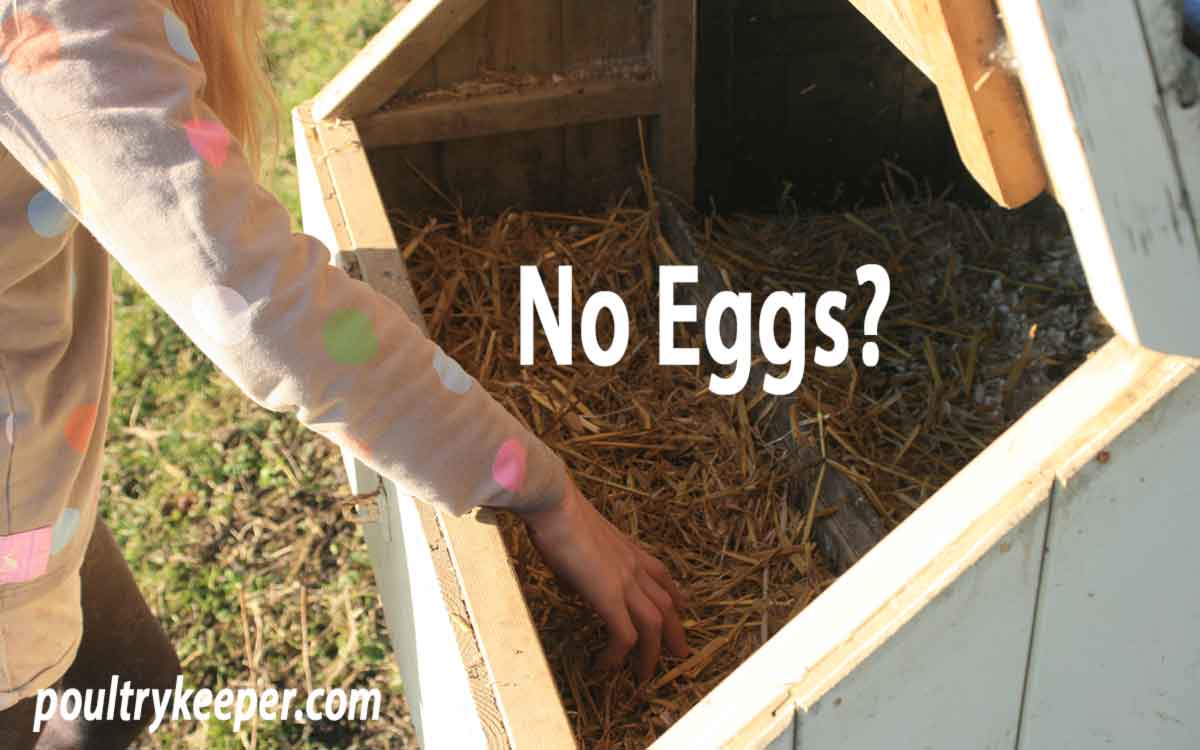
“Why have my chickens stopped laying eggs?” is the most common question I get asked. There can be several reasons why chickens have stopped laying, but you can normally work out why with a little bit of detective work!
The typical sequence is for chickens to lay in cycles. Hens are sensitive to the number of daylight hours and whether this is increasing or decreasing. Hormones in the body, produced by the pituitary gland at the back of the eye regulate egg production, so when daylight hours are reducing, egg production decreases and eventually stops.
As the daylight hours decrease in late summer/early autumn, hens will naturally reach the end of their laying cycle and start to replace their feathers as they moult. This is probably the biggest reason why chickens stop laying eggs!
Feathers are approximately 80% protein, so it’s no wonder your chickens stop laying during the moult. It can take a few months to complete a moult in some hens, but by the winter, most hens have finished and start a new egg-laying cycle as the daylight hours increase once again.
The spring should see the peak of egg-laying when you should have the most eggs.
There are, however, several reasons why your chickens will stop laying during the ‘normal’ time we would expect them to be laying eggs.
They have a shorter laying cycle
Some breeds of chicken lay fewer eggs than others and will have a shorter laying cycle. They will start laying eggs a little later and finish laying earlier. You can get an idea of how many eggs to expect on the chicken breeds pages. All breeds should be laying in the middle of spring.
They are out of sync with nature
Hens will keep laying with artificial lighting; for example, commercial hens lay for 18 months without a break. When we rehome these hens, they will often stop and need some time to get back in sync with the seasons.
If you rehome battery hens, you may find they stop laying for a while until they have moulted and got back in sync with natural daylight hours.
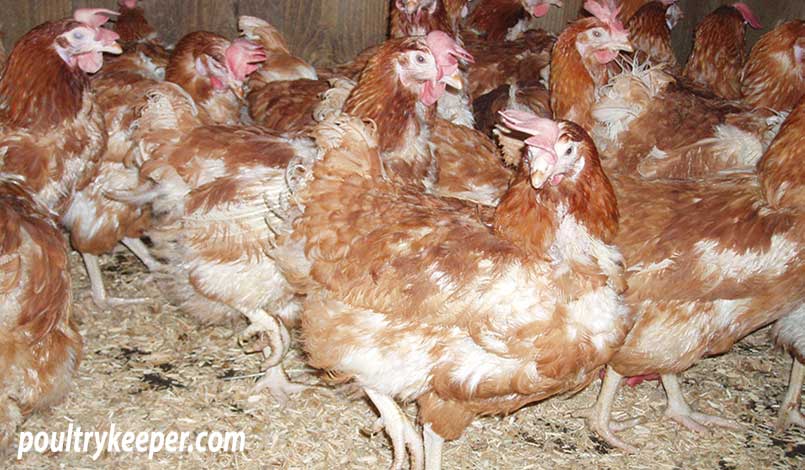
Insufficient light
Chickens ideally need 14-16 hours per day. Typically hens stop laying between late September and February in the UK.
Laying can continue through winter with the use of artificial lighting to extend the natural daylight hours. Commercial farms will use artificial lighting to produce eggs during the winter and summer months.
Incorrect diet
Eggs are around 80% protein, so naturally, they must also have sufficient protein in their diet. Amino acids, vitamins and minerals are the building blocks of protein.
If your hens are getting a low protein diet, it can cause them to stop laying. Hens will eat to meet their energy requirements, so they will fill up on treats if you let them. For example, feeding too much mixed corn (scratch if you are in the US) will provide lots of energy but insufficient protein for egg-laying.
It is necessary to provide a balanced diet with a formulated feed to maintain egg production. You may need to review your hens’ diets and read: Feeding Chickens.
Calcium
Between 2 and 4g of calcium is required to produce an eggshell. Calcium is stored in the skeleton (which contains between 20 and 40g depending on the breed), but this is rapidly depleted during egg production if a hen can’t get enough calcium in her diet.
Oystershell grit can be provided to allow a hen to top up her calcium levels.
Age
Hens lay fewer eggs as they get older. This is one reason commercial spent hens are only kept for their first egg-laying cycle, (which is extended to about 18 months by controlling the lighting) and are replaced after this because they are no longer commercially viable.
Typically chickens lay 10% fewer eggs year on year.
Health
Poor health can stop chickens laying. If a chicken is sick, egg-laying is usually the first thing to stop.
If your hens stop laying during the summer months, it is a good idea to check their coop and nestboxes for red mite. They feed on your hens while they roost at night and can cause them to become anaemic.
Stress
Moving hens, a water shortage or a scare from a predator are common causes of stress and can cause chickens to stop laying, sometimes going into a partial moult part-way through a laying cycle.
Willy's
Apple Cider
Vinegar
Full of vitamins, minerals and trace elements, I believe Apple Cider Vinegar has health benefits to support the immune system and is particularly good at times of stress when chickens can pick up a disease.
Please read my article on Apple Cider Vinegar for Chickens for further information.
A high-quality ACV I can recommend is Willy’s Apple Cider Vinegar.
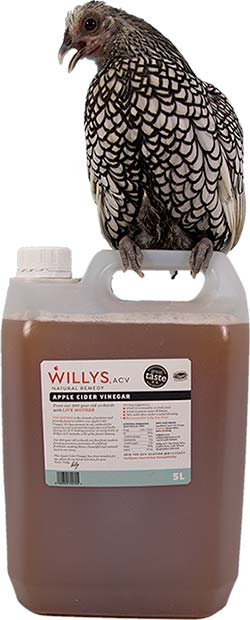
Broodiness
Broody hens will sit on a nest and stop laying eggs for 5 to 10 weeks, but if you catch them early, you can stop a broody hen and get her laying again.
The longer she is broody, the longer it takes to get them laying again, so it’s cruicial to act fast if you want to stop her.
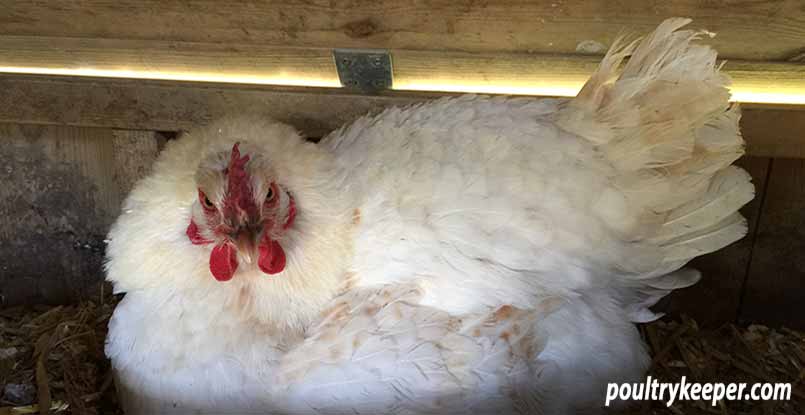
Hot weather
Hens reduce or stop laying when the weather is hot. Chickens can’t sweat to cool down, so they will pant and increase their water intake. The water must be cooler than their body temperature, so you can help them to keep cool by providing fresh, cool water in the shade.
A Family
Guide to
Keeping Chickens
Anne’s book is a full colour, practical book which is ideal for beginners.
Even someone who has never kept animals before should be able to follow the clear, detailed guidance that is given.
It includes planning for your first chickens, understanding their behaviour, choosing suitable housing as well as chickens, equipment you will need, and routine care. Protecting against predators, dealing with parasites and ailments, broody hens and much more.

Laying elsewhere
My neighbour asked, “Why have my chickens stopped laying eggs?” and I was about to make some suggestions, but I noticed her hens all had bright red combs and looked as if they should have been laying, so we decided to watch them for a while. It soon became apparent that his hens were disappearing into the hedge from time to time, and a little detective work found a nest with 28 eggs in it!
If your hens have deep red combs, they are likely to be laying, so if you don’t see eggs where you would expect, check they aren’t laying in a hidden nest. There are some tips for getting hens to lay in nest boxes here.
If you do happen to find a nest full of eggs and don’t know the eggs’ age, you can use the egg float test to see if the eggs are still fresh.
Eggs stolen from the nest
One summer, my egg numbers were decreasing gradually. It wasn’t until I found some eggshells with holes in them in the neighbouring field that I realised something was taking eggs from the chicken coop.
There are many predators that will steal eggs. Snakes (but not in the UK), rats, stoats, weasels, mink, crows and magpies are the usual culprets during the daytime.
To find out where my eggs were going, I set up a trail camera. The video clip is below!
Other related articles & guides:
- Magpies - Stop them from stealing your eggs.
- Moulting: Diet, Symptoms & Care - Information about the annual moult and how to help your chickens through this difficult time.
- How to Get Rid of Rats - They can steal eggs, spread disease and cause untold amounts of damage.
- Feeding Chickens - How to feed chickens (correctly) to keep them productive.

